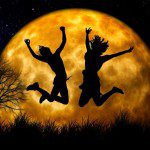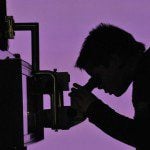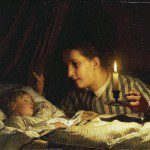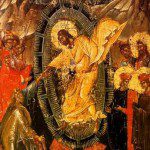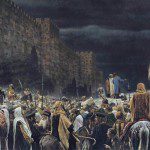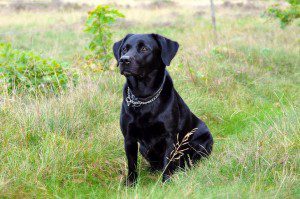
Their humble little souls
Two beautiful boys I love learned last night that their beloved dog, Miles, has advanced lymphoma and will die soon. Their parents who love him, too, had to tell them. It’s how many children learn their first lessons about loss—if they’re lucky children, and don’t live in war zones or places to which pollution has been exported or where pesticides fill the air they breathe. Those children learn about death in other ways.
Wislawa Szymborska writes, in his poem “Seen from Above,” of how animals’ deaths seem “shallower”: they “do not pass away, but simply die,” and lose–“we wish to believe—less of awareness and the world. “Their humble little souls do not haunt our dreams.” I know many animal lovers who would take issue with these claims, who have been devastated by the loss of a beloved animal companion, for whom the term “pet” is too small and condescending, whose animals are family members in full and good standing. But these people are, I imagine, a minority. For most of us, even if we grew up on classic children’s stories like Old Yeller or Black Beauty or Lassie, the conviction that humans matter most remains deeply entrenched.
So it’s hard to fully embrace the point of view David Quammen offers in one of his essays where he observes that the Creator must have had “an inordinate fondness for beetles” because their kind are so many and various. Or to grasp the fact that if humans disappeared the planet would thrive, but if insects disappeared, it would die. Those who rest easy with the idea that humans are the pinnacle of creation, whose taking dominion over all the other orders implies ownership of animals and animal products and animals that are products, might do well to reread the many passages in biblical writings that insist on the Creator’s care for the sparrow. Or that the “rocks are for the badgers” and the high mountains for the wild goats. For them. For them.
One of Annie Dillard’s memorable passages about her travels in the natural world gives an account of prolonged eye contact she made with a weasel. Taking one another by surprise in the woods, she and the weasel locked eyes. “Our look was as if two lovers, or deadly enemies, met unexpectedly on an overgrown path,” she writes, “when each had been thinking of something else: a clearing blow to the gut. It was also a bright blow to the brain, or a sudden beating of brains, with all the charge and intimate grate of rubbed balloons. It emptied our lungs. It felled the forest, moved the fields, and drained the pond; the world dismantled and tumbled into that black hole of eyes.” It’s the sort of passage over which some, who are not the besotted Dillard fans to whose company I belong, roll their eyes. But I imagine, though they can’t offer such deft description, many have caught glimpses, upon making eye contact with an animal, of “who’s there.”
Symborska’s mention of animals’ “humble little souls” was particularly arresting, since humility is, in fact, a saintly virtue, and characteristic of the great souls we commemorate and canonize. In A Man for All Seasons Robert Bolt’s Thomas More observes, “God made the angels to show Him splendor, as He made animals for innocence and plants for their simplicity. But Man He made to serve Him wittily, in the tangle of his mind.” I’ve returned to that line often for the inspiration and challenge it offers to us human folk to keep our wits about us and explore our tangled selves and all the webs we weave. But the innocence of animals, coming between the angels’ splendor and human wit, has its own pride of place. We need them to reflect exactly that, and to teach us—creatures who do not diminish themselves by forethought of death, creatures who live in the moment. Creatures like Miles whose tail wags when he is interested or happy or eager, which is most of the time, and who will die as he lived, unsuspecting and unresisting, when it is time.

